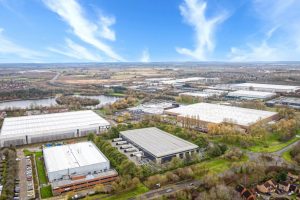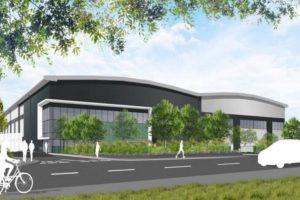Let’s talk about safety
With the addition of filmed round tables, Handling & Storage Solutions has added another strand to the Safer Logistics Campaign, which has long been a feature of the magazine, and a key seminar area at The Health & Safety Event at the NEC.
The first round table, which took place on November 4, focused on the key topic of forklift safety.
Our sponsors Toyota Material Handling UK, Combilift, Elokon, and Mentor Training contributed greatly to the discussion. In December, the video will be available to view on the HSS website.
So, why is it important to have a discussion on forklift safety?
Sam Gray, sales training & product development manager at Toyota Material Handling UK says: “We believe it’s important to have an ongoing conversation about forklift safety because damage and injury occur far too frequently in materials handling. By taking an approach of continuous improvement, we believe forklift safety levels can be improved for all.
“The key points discussed include how to make safety part of your organisation’s culture, benefits of active stability systems, the impact of telematics systems and operator training to name just a few.”
Martin McVicar, CEO and co-founder of Combilift adds: “Forklift trucks are indispensable in many industry sectors, but accidents involving them are still far too common. Safety should be a number one priority for management and all employees and discussions such as these can reinforce this by highlighting the risks and how to minimise them.”

Stuart Taylor, managing director, Mentor Training explains: “There still seems to be a misconception that, when it comes to the crunch, you must choose whether to operate safely or productively. But these are actually one and the same thing. ‘Safely’ doesn’t have to mean ‘slowly’, just as ‘productively’ doesn’t necessarily mean ‘quickly’.
"Businesses need to take into account the costs, delays and disruption that result from unsafe practice, and be reminded that safer operations will boost your bottom line, whereas a H&S breach could destroy it.
“As forklift operator training specialists, we’re always keen to share ways to minimise human error and reduce the risk of accidents in this way. But we’re also aware that forklift safety is about much more than just the operator.
"There are many contributing factors, such as pedestrian awareness, segregation, safety culture and the role of the manager, that we’re used to discussing with our customers. It’s vital that we look at the full picture and ensure that everyone who could be affected by the safety of your forklift operations, understands the risks and plays their part in helping to reduce them.”
Elokon managing director Alexander Glasmacher emphasises how technology can help eliminate the problems that come from human error.
“There is a broad range of driver assistance systems available on the market today to avoid incidents. The awareness for such solutions, however, can still be much improved. “We want to show how such systems improve worker and site safety and highlight innovations and trends in driver-assistance technology R&D.”







